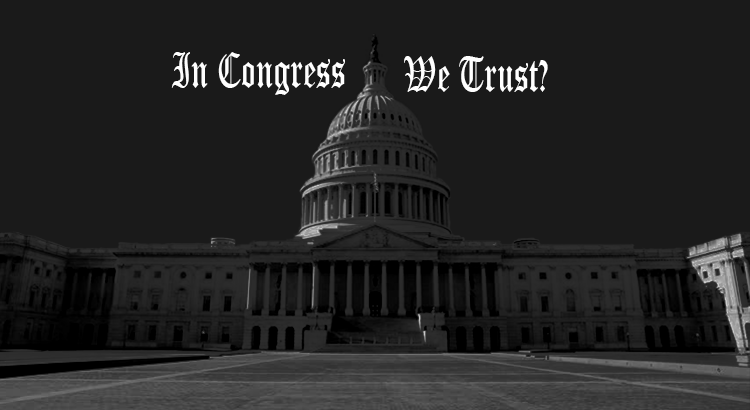After the collapse of the Senate healthcare bill (whichever version. Just pick one.), the Trump administration simultaneously put pressure on Congress to continue to work towards passing a bill while pivoting to immigration reform. If you need to ask just how invested the White House has actually been in passing that legislation, you have your answer. Trump’s support came at the eleventh hour, trying to personally persuade John McCain to get on board while sending tweets urging the Republicans on. After months of wavering presidential support for the bill and its outcome, it seems fairly evident that this administration is both weak and ineffective at pushing its policy agenda. The reasons for this are in no short supply. One could point to the infighting amongst Trump’s team. You can point to the lack of connection to the party now that Trump has effectively cut out most of the republican party stalwarts (i.e. Reince Priebus). You can point to Trump himself and his general incompetence in regards to negotiations which was supposed to be his one saving grace as a presidential candidate. However this article is not about any of those things. It is about the golden opportunity that Congress has before it and the one thing that both parties can come together on: seizing power away from the executive branch.
The Constitution lays out in rather general terms the powers of the presidency in section two of article two. Of these powers there are the obvious and well known such as the president will be the commander in chief of US military forces. He is given the power to offer pardons and reprieves for offenses against the United States (except when under impeachment). He has (with advice and consent from the Senate) the power to make treaties and appoint officers to various positions of ambassadors, consuls, judges to the Supreme Court, and all other appointments that are not expressly provided for in the Constitution. As far as Congress’s ability to affect foreign policy, Congress has the power to regulate commerce with foreign nations, declare war, and provide for the maintenance of military forces.
Presidents have had enormous power and authority to conduct foreign affairs on behalf of the United States. The ability to regulate taxation however is one of the more leveraged tasks in regards to how Congress can intervene in foreign policy. Whether it is the approval of budgets or the appropriation of funds, Congress has managed to use these powers to great lengths in managing and providing input on foreign policy decisions. For more information on the list of these powers and events I recommend the following webpage, but for the sake of brevity I won’t go into detailed examples of all the different ways Congress intervenes in foreign affairs.
The point is simply that there is a constant push and pull, ebb and flow, to which branch claims which authority when it comes to foreign policy. But when it comes to the current administration and the current Congress, it appears that the situation is ripe for Congress to begin seizing control of foreign policy proceedings. In the past month, Congress came together and passed by an overwhelming margin, a bill that to a minor extent restricts the powers of the president. The bill that forces Trump to leave in place Obama era sanctions is important beyond what it does to Russia-US relations. Congress has effectively begun to test its powers at the detriment to the current president and perhaps even future presidents.
In regards to sanctions, both the legislature and the executive branch share powers in levying restrictions and punishments on foreign nations for breaching international norms or engaging in misconduct. According to the Council on Foreign Relations, the president is usually responsible for starting the process by executive order, which is exactly what former President Obama did just prior to leaving office. The president effectively declares a state of emergency, granting him powers provided to him by congress by the International Emergency Economic Powers Act. The order is good for one year unless it is terminated prior to that by Congress, or extended by the acting president. It does not seem evident that Congress has the power to actually extend an executive order without the executive’s permission under this act. However that is effectively what has been done as the ability for the current president to relax the sanctions levied by a previous president has been taken away.
Furthermore, Congress is now considering another bill that will prevent President Trump from firing Special Counsel Robert Mueller. The passage of this bill would effectively demonstrate that Congress can exact privileges in regards to personnel that have also historically fallen within the confines of the executive branch. More specifically, Mueller and his investigative team are part of the Department of Justice and report to the Attorney General. But the Attorney General is tasked with carrying out the enforcement of the law according to the administration and the administration, in the firing of James Comey, has already shown its sway and influence on the DOJ.
This bill seems to be gathering bipartisan support as Democrats want to keep Mueller in place for the obvious reason that he is investigating Trump, while Republicans are becoming more aware of the fact that any further presidential meddling in this investigation is politically damaging to him and it makes it more difficult for Republicans in Congress to publicly defend the president. As a result, it is my best guess that this new piece of legislation will pass and it will likely pass with a majority beyond the threshold needed for a veto override. Not to mention that like the Russian sanctions bill, vetoing would cause a political and public relations nightmare where the insinuation is that Trump wants to fire Mueller (despite his claims that he will not do so). If the bill does in fact pass, then it should send the message to the rest of Congress that there is one thing that most everyone in both parties can get behind, that is limiting the power of the executive branch and securing new or previously unused authority for the legislature.
Much like the Supreme Court secured the right of judicial review which was never explicitly a part of the checks and balances that were written into the documents by which our government runs, Congress can test the boundaries of where its power begins and ends when it comes to foreign policy, government staffing and more. This is a unique and prime point in history where the current President and his administration are weak, ineffective, dysfunctional, and hamstrung by media scrutiny and low approval ratings. Perhaps you could find an administration in the past that dealt with all of these things. But unless the president challenges the previous bill regarding Russian sanctions, the message will be sent that the President will not challenge further infringements on executive power. Again, these are not long term, overarching reaches. These bills are in regards to very specific matters. But in government, precedence matters. Congress can continue to work together on bills which test the limits of what the current president will tolerate and potentially expand the constraints of Congress’s power for future legislatures.
With that said, whether or not that is a good thing is a question beyond my ability to answer. The reason the presidency is imbued with such power is that a single actor will be able to respond and act with more speed and conviction then a body such as Congress. In regards to foreign policy, the climate is constantly changing and quick action is often necessary. Congress will not be able to seize complete control over these issues but with the congressional freeze on sanctions raised on Russia, we now have a situation where if a future administration did want to lift these sanctions, that is now a part of the chess game that is politics. Opposing parties could block that move out of spite, limiting future presidents and their interactions with Russia. Based on our current relations it will be quite some time before that would be considered acceptable by most Americans and most members of Congress, but someday in the future, Russian-American relations will likely improve as governments change. And if that day comes, the acting president will be at the mercy of Congress to make that possible.



